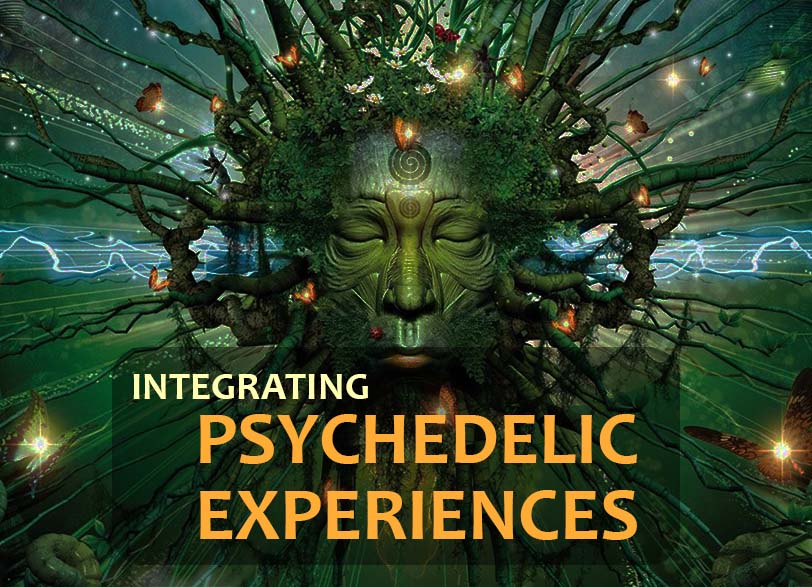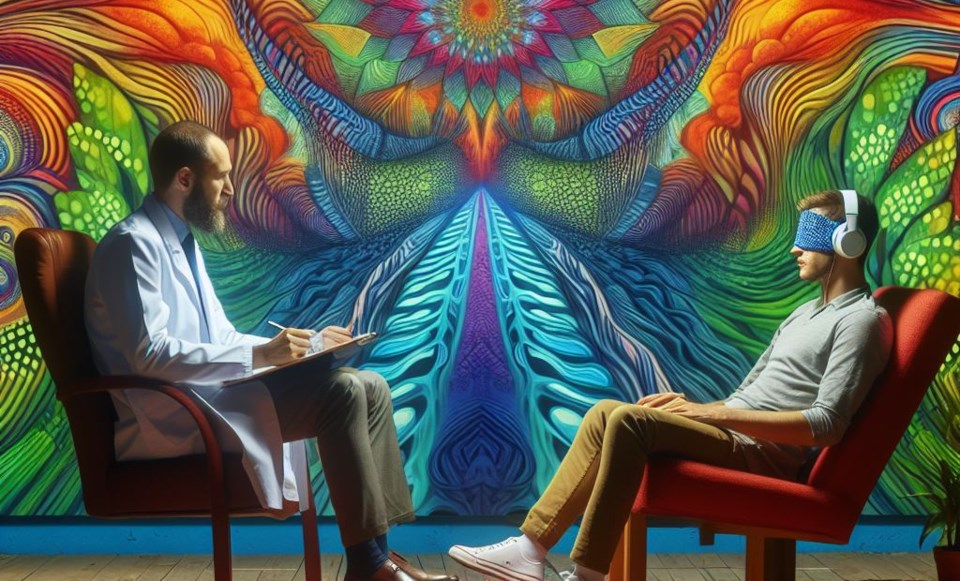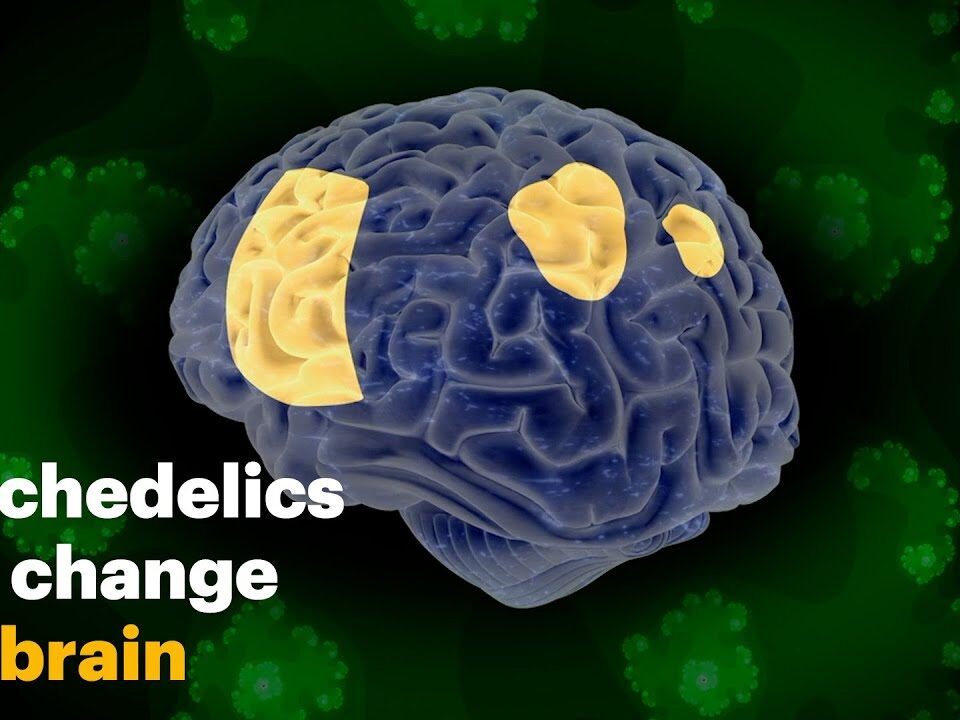Microdosing Magic Truffles: Benefits and Risks
October 22, 2024
Plant Medicine & Psychedelics Throughout History
December 22, 2024Table of Contents
- Ancient Greece and The Eleusinian Mysteries
- Psychedelics and Christianity
- Psychedelic Use in Judaism
- Islam, Spirituality, & Psychedelics
- Peyotism and the Native American Church
- Mazatec Psychedelic Secrets
- Buddhism’s Links to Psychedelic Mysteries
- Psychedelic Use Among Cultures of the Amazon Basin
- Hinduism and the Sacred Soma
- Ibogaine and the Bwiti Religion of Gabon and Central Africa
- The Mysteries of Santo Daime
- Psychedelic Traditions of the Maya and Other Ancient American Peoples
Ancient Greece and The Eleusinian Mysteries
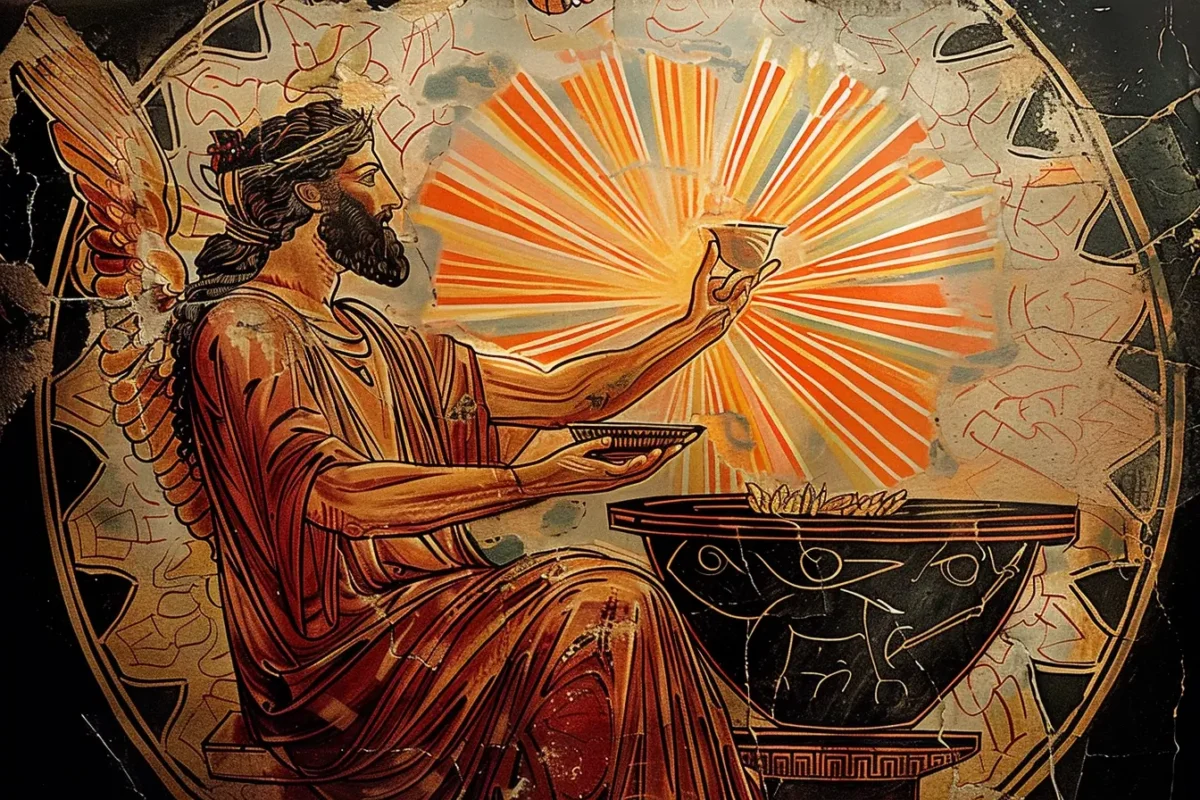
The Eleusinian Mysteries were ancient religious rites held in honor of Demeter and Persephone, believed to provide initiates with profound spiritual insights and a connection to the divine.
Central to these rites was the consumption of a sacred drink called Kykeon, which some scholars suggest contained psychoactive substances that induced altered states of consciousness, facilitating mystical experiences.
Psychedelics and Christianity
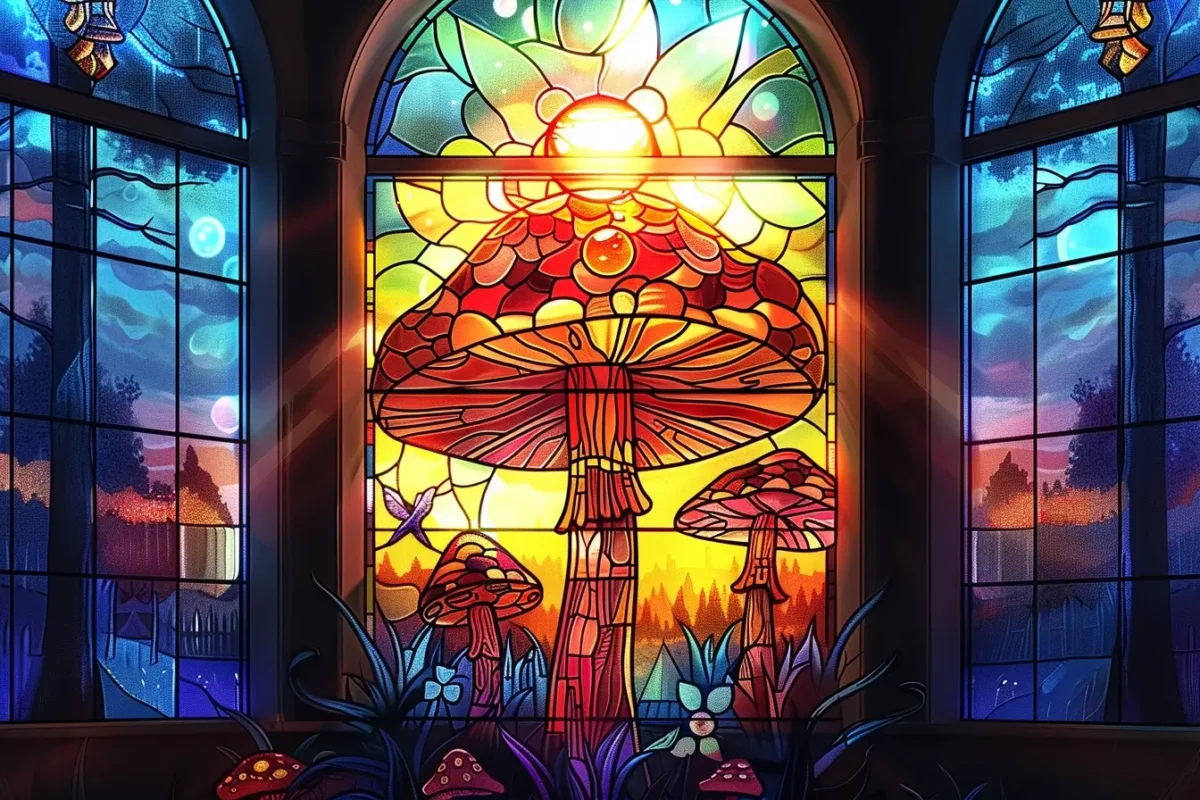
Psychedelics may have played a role in early Christian rituals, particularly through the use of wine mixed with psychoactive herbs.
Some theories propose that early Christians experienced divine visions similar to those described in the New Testament, potentially linking their spiritual practices to ancient Greek traditions involving entheogens.
Psychedelic Use in Judaism
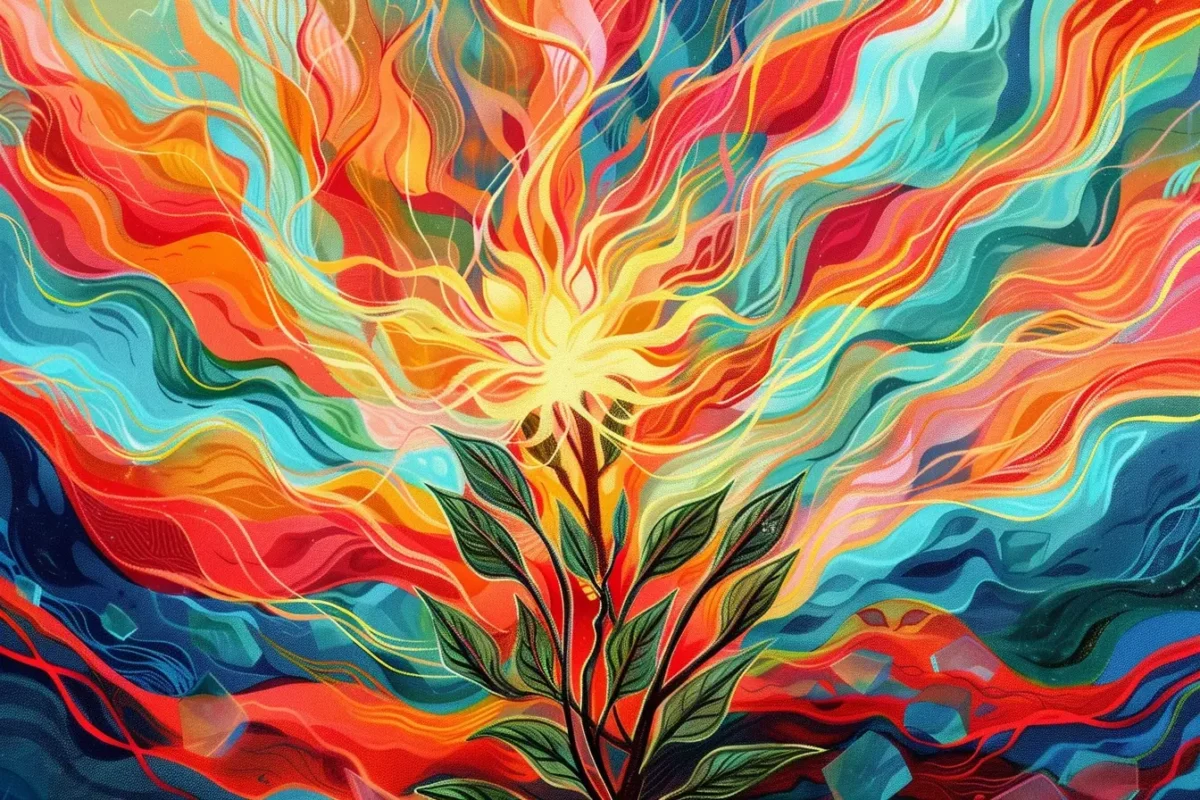
In contemporary discussions, psychedelics are being explored within Jewish mysticism, especially Kabbalah, as tools for spiritual awakening and trauma healing.
Historical accounts suggest that substances like acacia incense may have been used by High Priests during sacred rituals in the Temple.
Modern Jewish communities are increasingly investigating how psychedelics can enhance religious experiences and deepen spiritual connections.
Islam, Spirituality, & Psychedelics

While traditional Islamic teachings prohibit narcotics, there is a growing interest among some Muslims in psychedelics like psilocybin for personal growth and spiritual exploration.
Some believe these substances can facilitate a deeper understanding of God, despite the general prohibition against mind-altering drugs. Historical references in Islamic texts hint at a possible connection between mystical experiences and psychedelic use.
Peyotism and the Native American Church
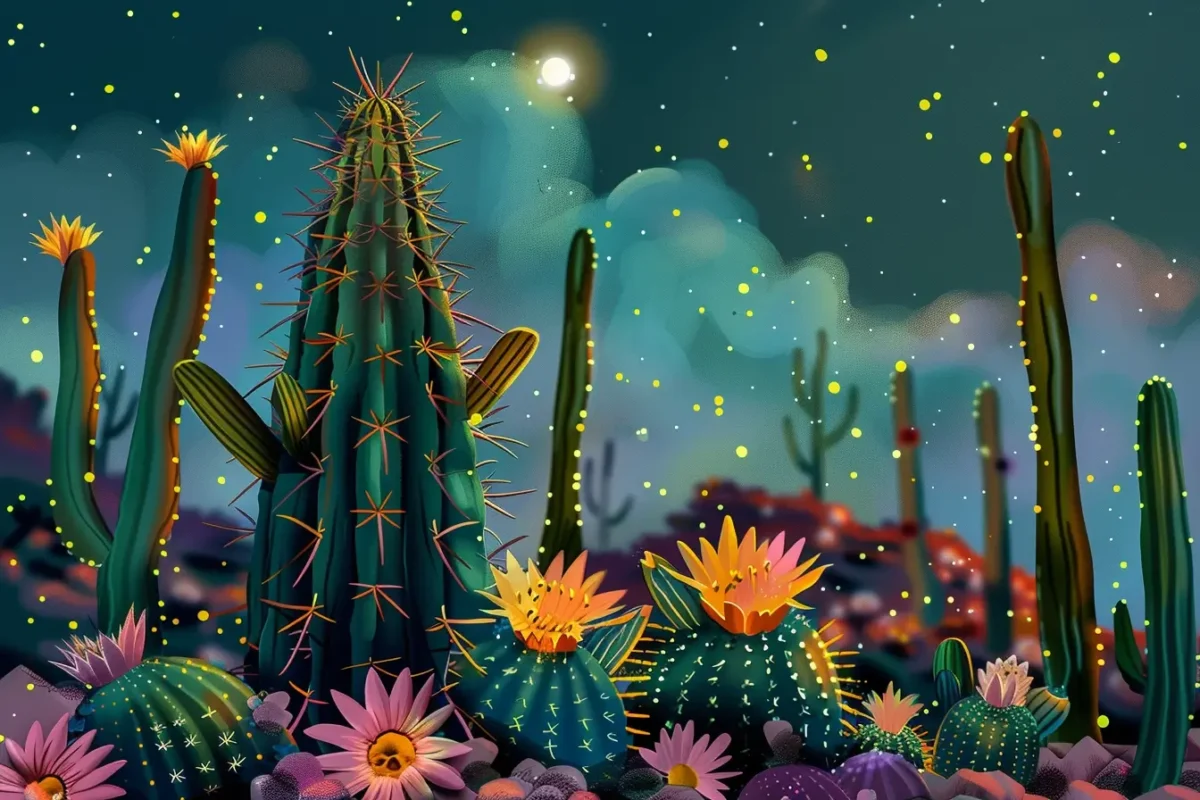
Peyote, a psychoactive cactus, is central to the rituals of the Native American Church, where it is used as a sacrament to facilitate communion with the divine.
This practice emphasizes healing, community bonding, and spiritual insight, reflecting a deep cultural integration of psychedelics into religious life.
Mazatec Psychedelic Secrets
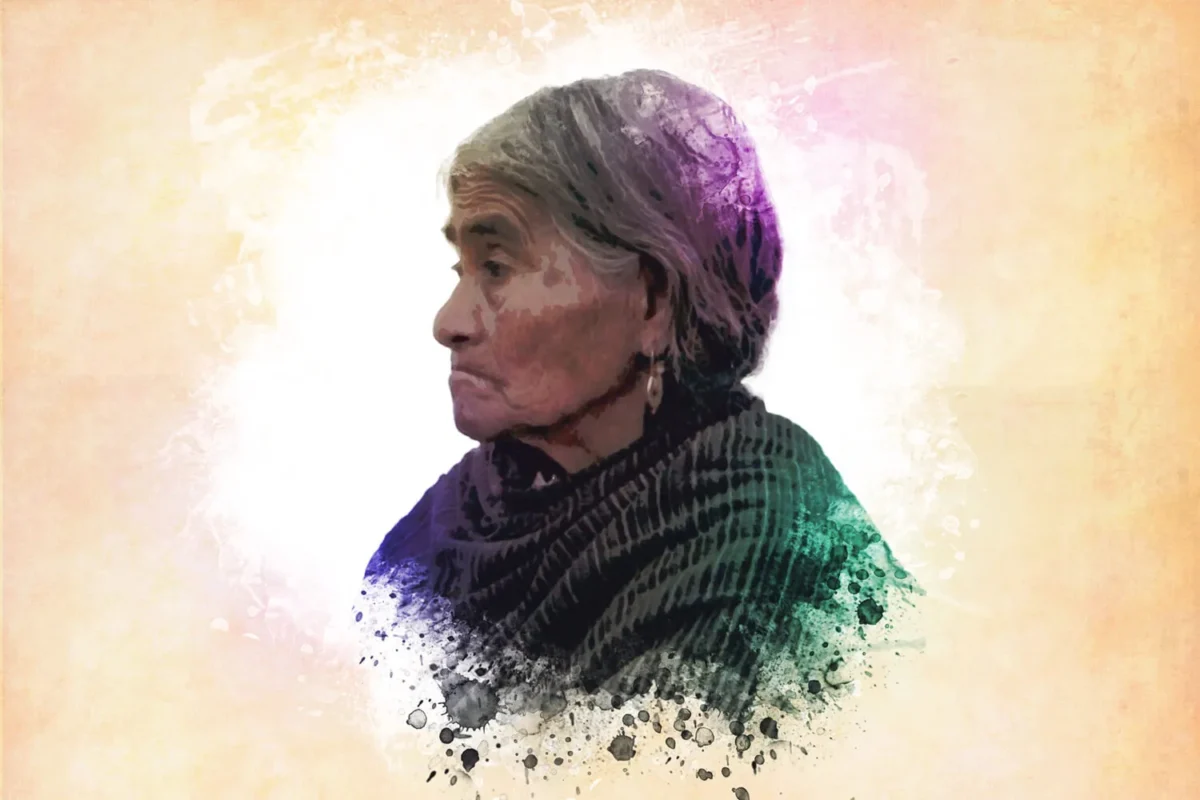
The Mazatec people of Mexico have long utilized psilocybin mushrooms in their healing rituals known as Veladas. These ceremonies aim to connect participants with divine entities for guidance and healing.
The famous curandera María Sabina brought international attention to these practices, highlighting their significance in both local tradition and global psychedelic culture.
Buddhism’s Links to Psychedelic Mysteries
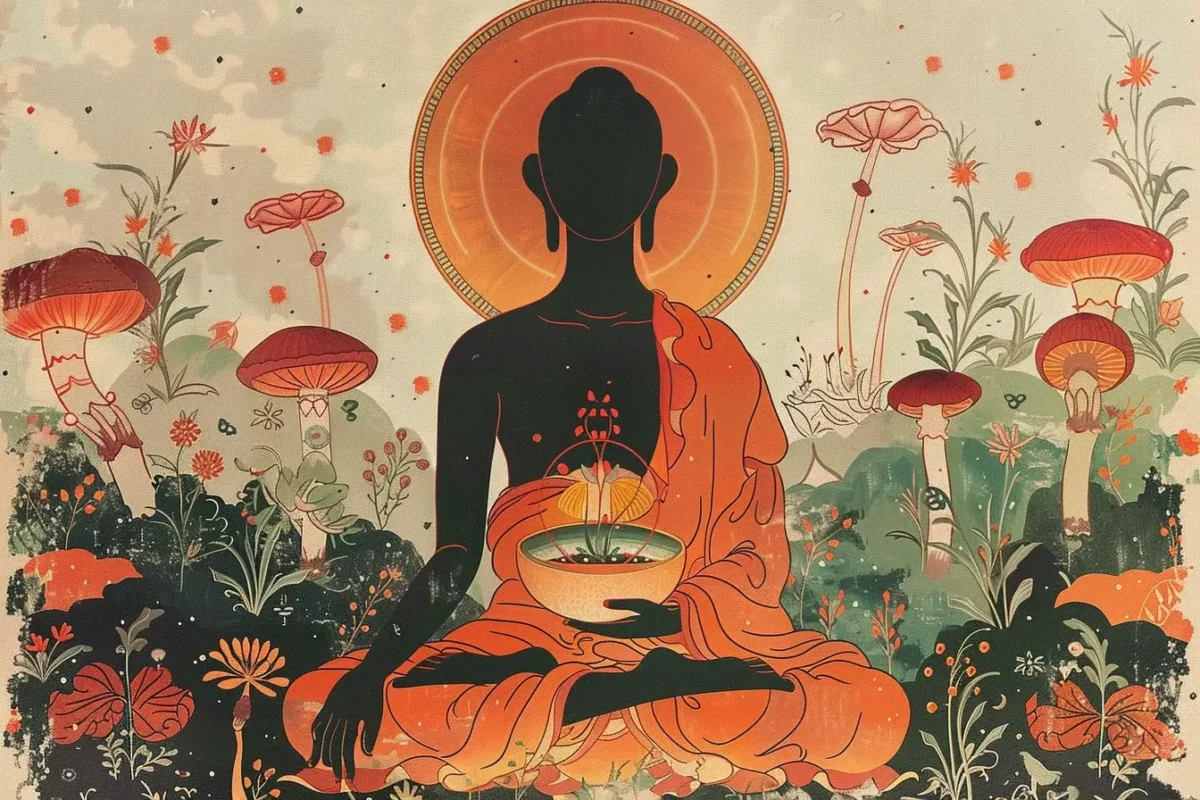
Recent studies suggest that certain Buddhist practices may have involved entheogenic substances aimed at achieving enlightenment.
Textual analyses indicate that experiences described by Vajrayana practitioners bear resemblance to those induced by psychedelics, suggesting an intersection between traditional meditation techniques and altered states of consciousness.
Psychedelic Use Among Cultures of the Amazon Basin

Indigenous cultures in the Amazon have long used ayahuasca as a sacramental brew for spiritual purposes. This powerful psychedelic is integral to shamanic practices aimed at healing and connecting with ancestral spirits, illustrating how psychedelics serve as conduits for divine communication within these cultures.
Hinduism and the Sacred Soma

Soma is a mysterious substance mentioned in ancient Hindu texts believed to confer immortality or enlightenment. Some scholars posit that this sacred drink may have been a psychoactive brew similar to modern entheogens, suggesting that early Hindu rituals involved altered states of consciousness for spiritual awakening.
Ibogaine and the Bwiti Religion of Gabon and Central Africa
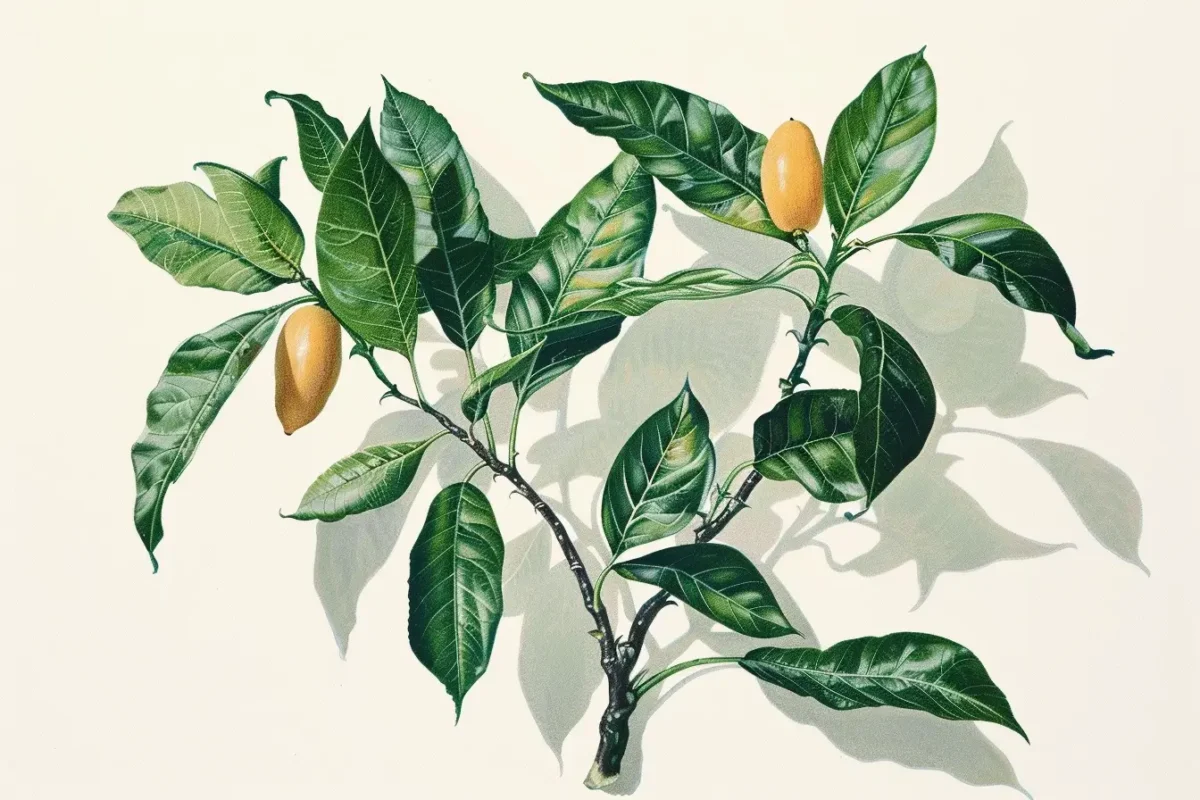
In Bwiti spirituality, ibogaine is used during initiation ceremonies to facilitate profound spiritual experiences and personal transformation.
This practice highlights how psychedelics can be integrated into religious frameworks as tools for enlightenment and community bonding.
The Mysteries of Santo Daime
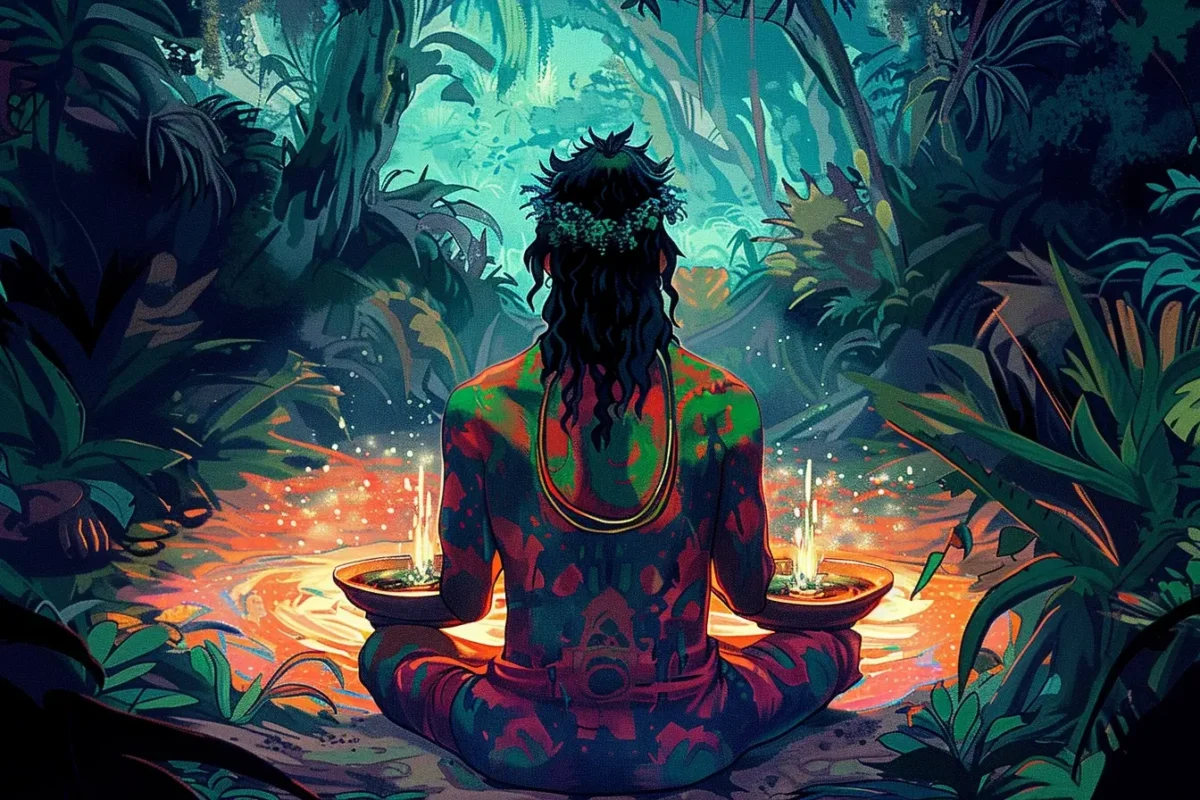
Santo Daime is a Brazilian syncretic religion that combines elements of Christianity with indigenous Amazonian practices, particularly through the use of ayahuasca.
Participants believe that this brew allows them to connect with divine forces, providing insights into their lives and fostering communal ties.
Psychedelic Traditions of the Maya and Other Ancient American Peoples

The ancient Maya utilized various psychoactive substances in their religious ceremonies to communicate with gods and ancestors.
These practices underscore the historical significance of psychedelics in shaping spiritual beliefs across Mesoamerican cultures.
In summary, throughout history, diverse cultures have intertwined religion with psychedelics, using these substances as gateways to transcendental experiences and deeper connections with the divine.
As contemporary society revisits these ancient practices, there is potential for renewed understanding of spirituality through psychedelics across various faiths.


